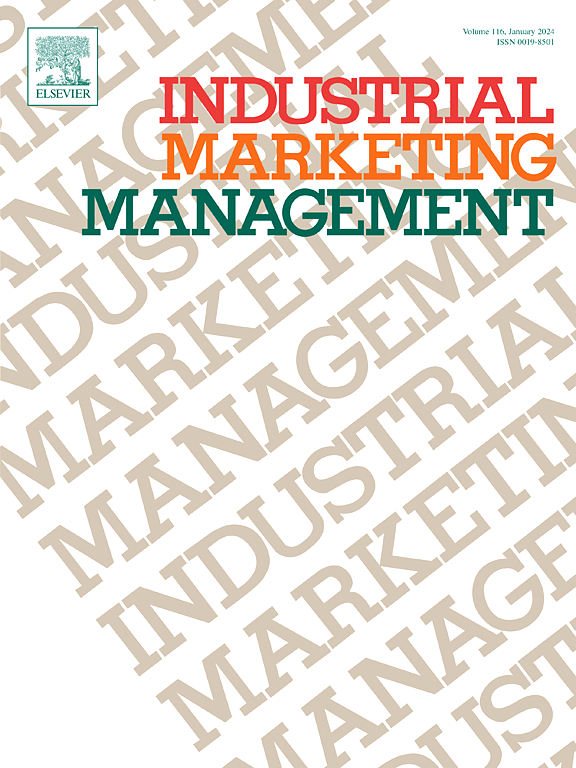B2B贸易展览的未来:从过程的角度看转型的驱动因素
IF 7.5
1区 管理学
Q1 BUSINESS
引用次数: 0
摘要
贸易展(TSs)的未来是什么?随着商业环境的变化,TSs是变得更重要了还是更不重要了?本研究解决了这些问题,在2012-2024年期间,对采矿业选定的TS进行了35次深度访谈(包括与会者、参展商和组织者的经理)和人种学观察(如视频、照片、笔记)。从过程的角度来看,我们观察到不同参与者的角色和TS不断变化的性质。组织者、参展商和参会者的参与动机是不同的。例如,组织者将技术服务视为通过协调多个参与者(例如,政府、大学)之间的联系而产生经济结果的业务。同时,与会者和参展商对社会技术互动和市场存在感兴趣,以发展或潜在地维持商业关系。另一方面,我们确定了驱动所选TS转型的三种力量:(1)文化,(2)商业和(3)数字。此外,技术支助系统的未来似乎不确定,取决于所有行动者的参与程度和知识产生任务的执行情况。本文章由计算机程序翻译,如有差异,请以英文原文为准。
The future of B2B trade shows: Drivers of transformation from a process view
What is the future of trade shows (TSs)? and are TSs becoming more or less important as the business landscape changes? The present study addresses these questions, drawing on 35 in-depth interviews (including attendees', exhibitors', and organizers' managers) and ethnographic observations (e.g., videos, photos, notes) during the 2012–2024 period for a selected TS in the mining industry. From a process view, we observe the role of the different actors and the TS's changing nature. What motivates the participation/action of organizers, exhibitors, and attendees is divergent. For example, organizers perceive a TS as a business generating economic results by orchestrating the connection among multiple actors (e.g., government, universities). At the same time, attendees and exhibitors are specifically interested in socio-technical interaction and market presence to develop or potentially sustain a commercial relationship. On the other hand, we identify three forces driving the transformation of the selected TS: (1) cultural, (2) commercial, and (3) digital. Also, the future of TSs seems uncertain and depends on the degree of involvement of all actors and the implementation of knowledge-generation tasks.
求助全文
通过发布文献求助,成功后即可免费获取论文全文。
去求助
来源期刊

Industrial Marketing Management
Multiple-
CiteScore
17.30
自引率
20.40%
发文量
255
期刊介绍:
Industrial Marketing Management delivers theoretical, empirical, and case-based research tailored to the requirements of marketing scholars and practitioners engaged in industrial and business-to-business markets. With an editorial review board comprising prominent international scholars and practitioners, the journal ensures a harmonious blend of theory and practical applications in all articles. Scholars from North America, Europe, Australia/New Zealand, Asia, and various global regions contribute the latest findings to enhance the effectiveness and efficiency of industrial markets. This holistic approach keeps readers informed with the most timely data and contemporary insights essential for informed marketing decisions and strategies in global industrial and business-to-business markets.
 求助内容:
求助内容: 应助结果提醒方式:
应助结果提醒方式:


